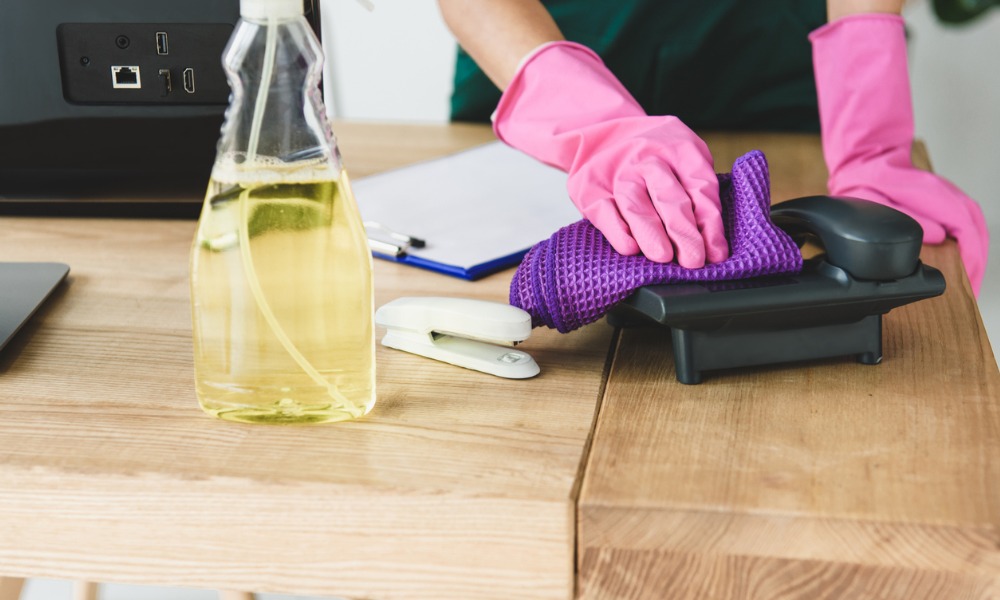
Believe it or not: your desk contains 400 times more bacteria than a toilet seat

As health experts around the world fight to contain the spread of the deadly novel coronavirus, employers are beginning to issue staff advisories on how to stay healthy and protect against disease.
The workplace itself can easily turn into a breeding ground of disease-causing germs: even your office desk contains 400 times more bacteria than a toilet seat.
In enclosed spaces such as elevators, hallways and cubicles, cross contamination becomes the most common way for microorganisms to spread.
In fact, it only takes two hours for germs to spread from a door handle to half the workforce.
Studies have also shown how one in four people forget to wash their hands after using the toilet. Hence, contact with high-touch surfaces can leave people vulnerable to infection.
Which hotspots and high-touch surfaces should employees be wary of?
Lobby and hallway
Desktop/work areas
Office kitchen/pantry
Restroom
READ MORE: Dishing the dirt on office germs
HRD has compiled a list of easy-to-follow tips – apart from handwashing and using hand sanitisers, of course – on how to prevent office germs from spreading:
1. Spritz away
Before starting your shift, make sure to first wipe down your desk with an anti-microbial wipe, or to spritz all surfaces with a disinfectant spray. Some brands now offer travel-sized versions of larger sprays that you can carry in your pocket or keep in a drawer.
2. Clear your desk when eating
If you take your lunch at your desk, be sure to clear the surface first of items such as your keyboard and mouse so as to prevent particles from falling into their little crevices. Grease and sauces that stain these and other surfaces can also attract microbes such as the clostridia species, which can cause diarrhoea, or pests such as roaches, which carry a host of disease-causing germs everywhere they crawl. It is best to use a mat that you can clean with dishwashing soap and water each day.
3. Never share mugs, water bottles and utensils
While some offices provide these items for common use, it’s always best to bring your own and to wash them in the dishwasher (if not in your own home kitchen sink). Sinks and sponges are generally a breeding ground for germs.
4. Avoid borrowing office items meant for individual use
Yes, even the lowly pen and stapler can be a direct carrier of the deadliest germs if they’ve been passed around by different hands. If another person borrows an item from you, remember to wipe the object with an anti-microbial wipe.
5. Throw away used tissue immediately
Even when crumpled up, used tissue can still be a source of contamination if it’s left out in the open after being used to wipe away fluids, grease and grime. Always dispose of them soon after they’ve touched another object or surface no matter how briefly.